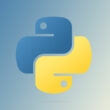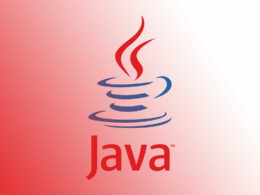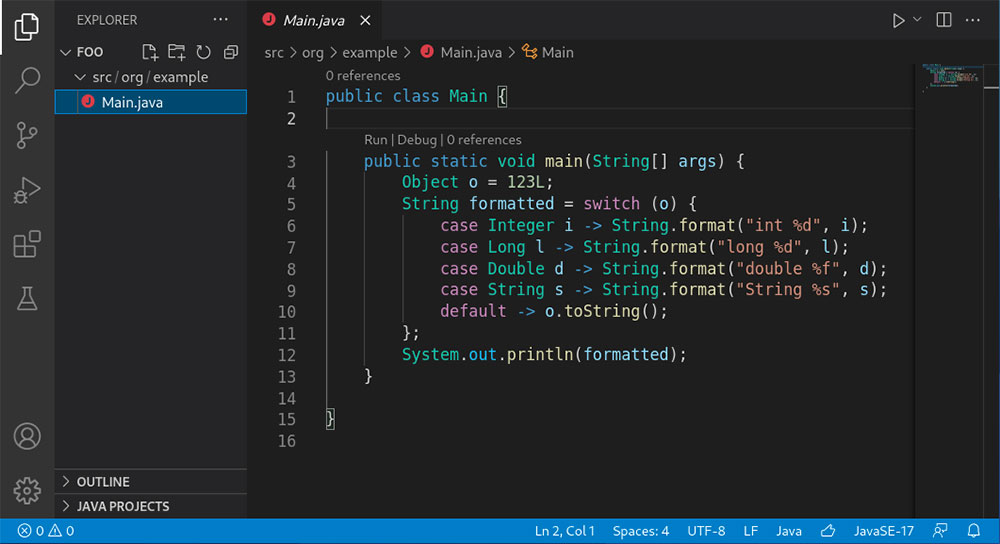Dive into the Java ocean; it’s brimming with treasures for both the novice sailor and the seasoned captain. In this vast sea, Java Books are the compasses that guide you through the intricacies of coding, algorithms, and app development.
They’re the map to hidden coves where knowledge nuggets shine, untouched by the everyday rush.
Embark on this thrilling quest to unlock the secrets of Java—one of the most versatile languages in the world of software development.
With an array of topics ranging from core concepts to the latest Java frameworks, these literary lighthouses illuminate paths for eager minds looking to navigate the currents of Java SE and EE, or anchor deep in the harbors of object-oriented programming.
By the finale of this expedition, you’ll have charted the best practices and discovered resources to master Java, be it for acing that certification or constructing robust applications.
Charted ahead are sections unveiling Java’s architecture, essential tools, and even brain-teasing Java puzzles to test your mettle. Let’s set sail; the beacon of Java mastery calls.
Java Books To Read
| Java Book Title | Author(s) | Target Audience | Focus Area | Publication Year (Latest Edition) |
|---|---|---|---|---|
| Java: The Complete Reference, Twelfth Edition | Herbert Schildt | Beginners to Advanced | Comprehensive Java Reference | 2020 |
| Head First Java | Kathy Sierra and Bert Bates | Beginners | Interactive Learning Approach | 2005 (2nd Edition) |
| Java for Dummies | Barry A. Burd | Beginners | Basic Concepts and Practice | 2017 (7th Edition) |
| Thinking in Java | Bruce Eckel | Intermediate to Advanced | Concepts and Philosophy | 2006 (4th Edition) |
| Core Java Volume I – Fundamentals | Cay S. Horstmann | Beginners to Intermediate | Core Java Concepts | 2018 (11th Edition) |
| Effective Java | Joshua Bloch | Intermediate to Advanced | Best Practices and Patterns | 2018 (3rd Edition) |
| Think Java: How to Think like a Computer Scientist | Allen B. Downey | Beginners | Intro to Programming Concepts and Java | 2016 (2nd Edition) |
| Java: The Good Parts | Jim Waldo | Advanced | Focused Aspects of Java | 2010 |
| Java Concurrency in Practice | Brian Goetz et al. | Intermediate to Advanced | Multithreading and Concurrency | 2006 |
| Clean Code: A Handbook of Agile Software Craftsmanship | Robert C. Martin | Developers of All Levels | Code Quality and Craftsmanship | 2008 |
| Java Performance: The Definitive Guide | Scott Oaks | Intermediate to Advanced | Performance Tuning and Analysis | 2014 |
Java: The Complete Reference, Twelfth Edition by Herbert Schildt
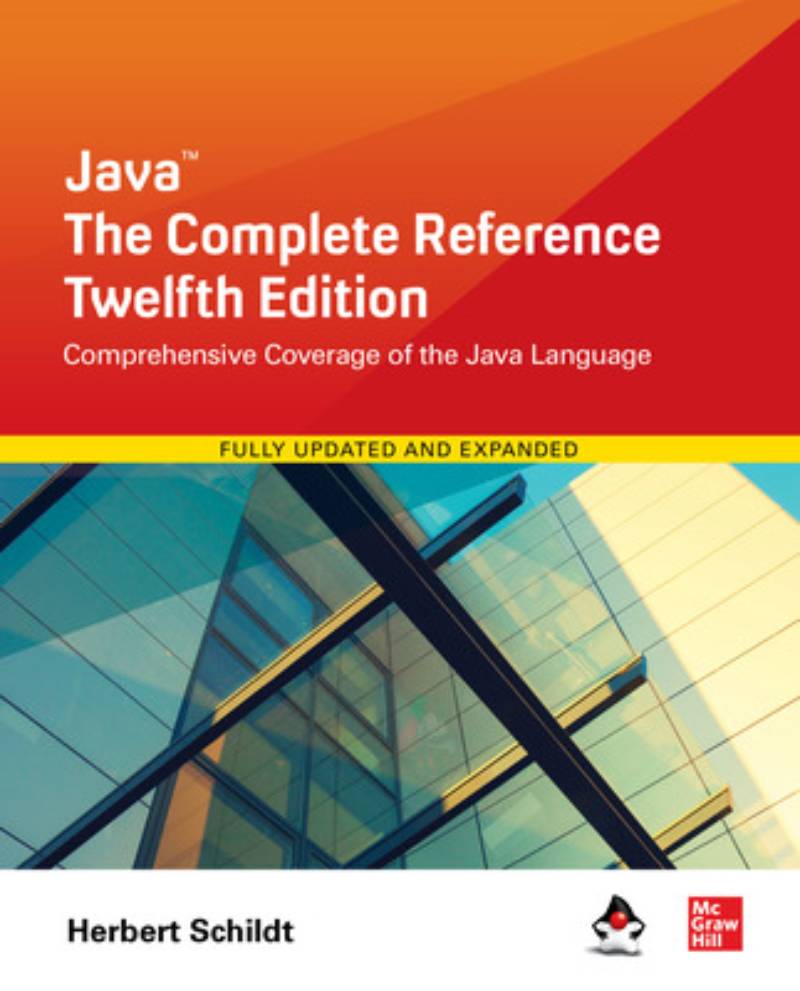
So, you’re looking for a Java guide that’s not just any guide, but the guide? Look no further. This book is like the Swiss Army knife for Java enthusiasts. Whether you’re just starting out or you’ve been coding in Java for years, this book has got your back.
What’s Inside?
- Java SE 17 Updates: This edition is updated for Java SE 17, which means it’s as fresh as your morning coffee.
- Java Basics and Beyond: From Java’s syntax, keywords, to its core programming principles, it’s all in there. It’s like the ABCs and the XYZs of Java, all in one place.
- Java API Library: Dive deep into Java’s API library. Explore I/O, the Collections Framework, the stream library, and the concurrency utilities. It’s like exploring a treasure island of Java tools.
- Swing, JavaBeans, and Servlets: Get hands-on with these topics and more. Plus, there are tons of examples that show Java in action. It’s like watching a movie, but for Java.
- New Additions: Discover the latest additions to the Java language, like records, sealed classes, and switch expressions. It’s like getting a sneak peek into Java’s future.
Why This Book?
- Clear and Crisp: Written in a style that’s clear, crisp, and uncompromising. It’s like having a conversation with a Java expert.
- Downloadable Code: The book comes with downloadable code. It’s like getting a bonus track with your favorite album.
- Coverage: From data types, variables, arrays, to exception handling, multithreaded programming, and more. It’s like a buffet of Java topics.
Head First Java by Kathy Sierra and Bert Bates
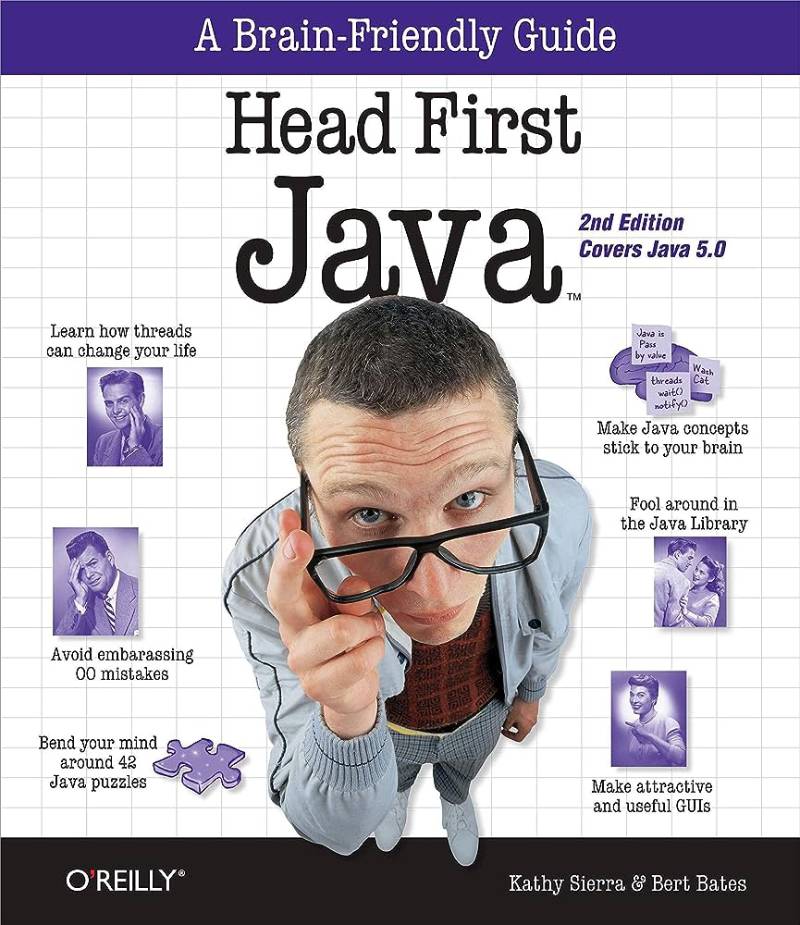
Ever felt like learning Java is like trying to drink from a firehose? Well, Head First Java is here to quench that thirst, without overwhelming you. This ain’t your typical Java guide. It’s more like a rollercoaster ride through the world of Java, with pit stops at the most crucial stations.
- Brain-Friendly Learning: Your brain isn’t a sponge. It’s selective about what it soaks up. This book gets that. It’s designed to tickle your neurons, making them alert and ready to grab all that Java goodness.
- Java and You: Think Java’s just another programming language? Think again. It’s an adventure, a challenge, and this book is your trusty guide. From the basics to the nitty-gritty advanced stuff, it’s got you covered.
- Visuals + Text = Magic: Ever tried reading a manual and felt your eyes glaze over? Not here. With a mix of quirky visuals and playful text, this book ensures you’re always engaged.
- Real Java, Real Fast: This isn’t just theory. It’s practical, hands-on learning. Dive into real-world examples, puzzles, and interviews with some Java celebs. Before you know it, you’ll be thinking and coding like a pro.
- Java 5.0 and Beyond: Java’s evolving, and so is this book. It’s tuned into Java 5.0, making sure you’re up-to-date with the latest and greatest.
So, why pick up another dull, drab Java book when you can have a blast with Head First Java? Whether you’re a newbie looking to dip your toes or a seasoned coder wanting a fresh perspective, this is the Java book for you.
Java for Dummies by Barry A. Burd
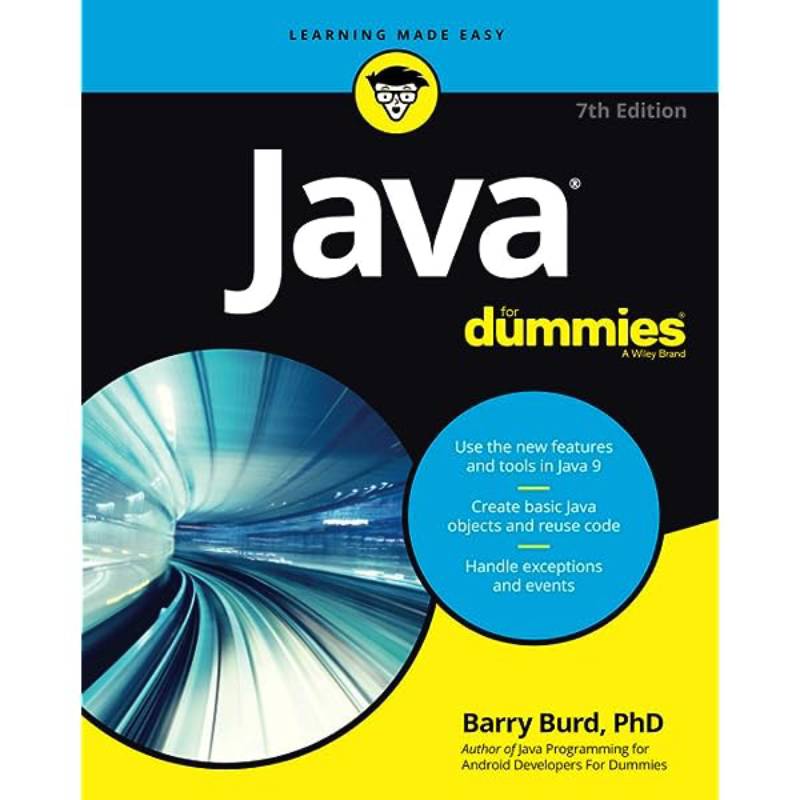
So, you’re thinking about diving into the world of Java? Well, you’ve got a gem in your hands! This book is like the ultimate starter pack for anyone wanting to get their feet wet in Java programming.
- Platform-Independence? Check!
Java’s got this super cool feature where it doesn’t care where you run it. Whether it’s on a website, mobile app, or even your smart fridge, Java’s got your back. - Object-Oriented Goodness
If you’ve heard the term “object-oriented” thrown around and wondered what the fuss is about, this book breaks it down. Think of it as building with Lego blocks. Each block (or object) has a specific role, and when you piece them together, you get a masterpiece! - Reuse and Recycle
No, we’re not talking about plastic bottles. In Java, if someone’s written a piece of code that does what you need, you can just use it again. No need to reinvent the wheel. - Stay Updated
Java’s not some old, dusty language. It’s constantly evolving. This book covers the latest and greatest, ensuring you’re not learning outdated stuff. - Eclipse Features
If you’re wondering what Eclipse is, it’s like the Swiss Army knife for Java developers. This book gives you a tour of its shiny new features. - Why Should You Care?
With languages like Python and Ruby gaining traction, why Java? Well, the new Java version is packed with features that keep it in the big league. Plus, closures! (Don’t worry, the book will explain what those are.)
Thinking in Java by Bruce Eckel
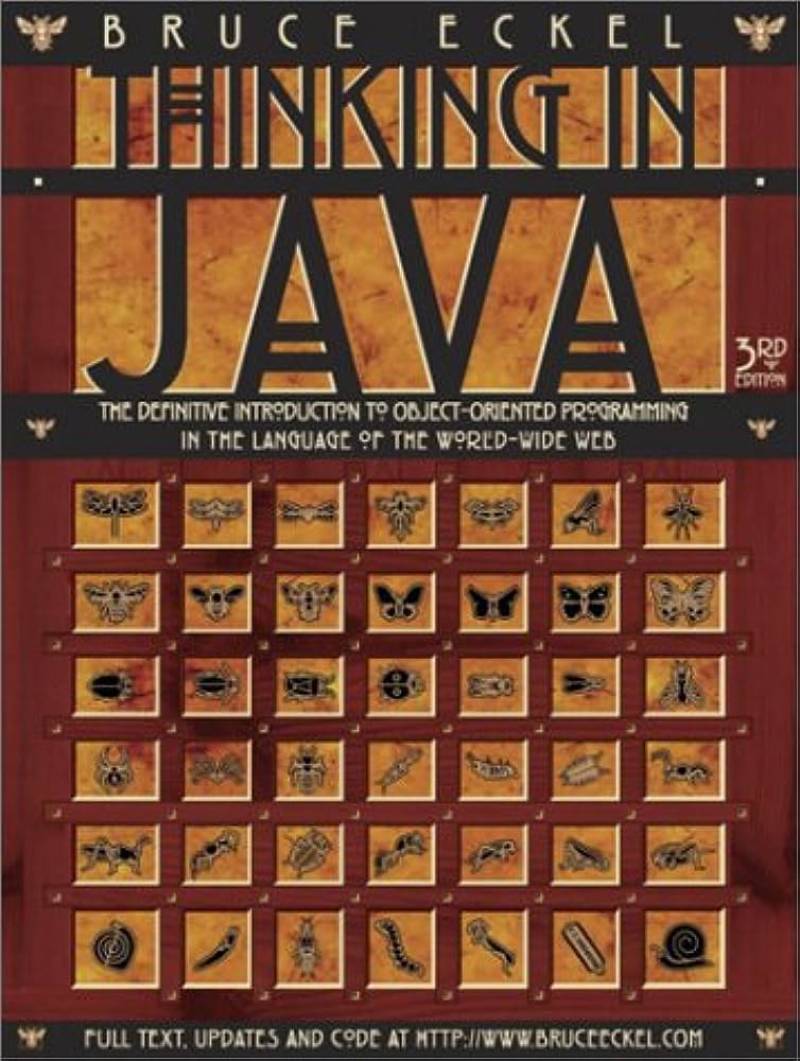
Let me tell you about this gem. “Thinking in Java” isn’t just about coding. It’s about understanding the soul of Java. 🌌
- Deep Dive: This isn’t your typical skim-the-surface guide. It’s a deep dive into the world of Java. From the basics to the nitty-gritty, it’s all in here.
- Real Talk: Bruce Eckel doesn’t just throw code at you. He explains the why behind Java. Why was it designed this way? Why does it work like that? It’s like having a coffee chat with a Java guru. ☕️
- Praises Everywhere: People around the globe are raving about it. From helping them ace exams to being their go-to Java reference, this book has made its mark.
- Exercises & Examples: The exercises? Super challenging. The examples? Right to the point. It’s like a workout for your brain. 💪
- Awards Galore: This isn’t just a book. It’s an award-winning guide. From Software Development Magazine to Java Developer’s Journal, it’s got accolades stacked up!
Core Java Volume I – Fundamentals by Cay S. Horstmann
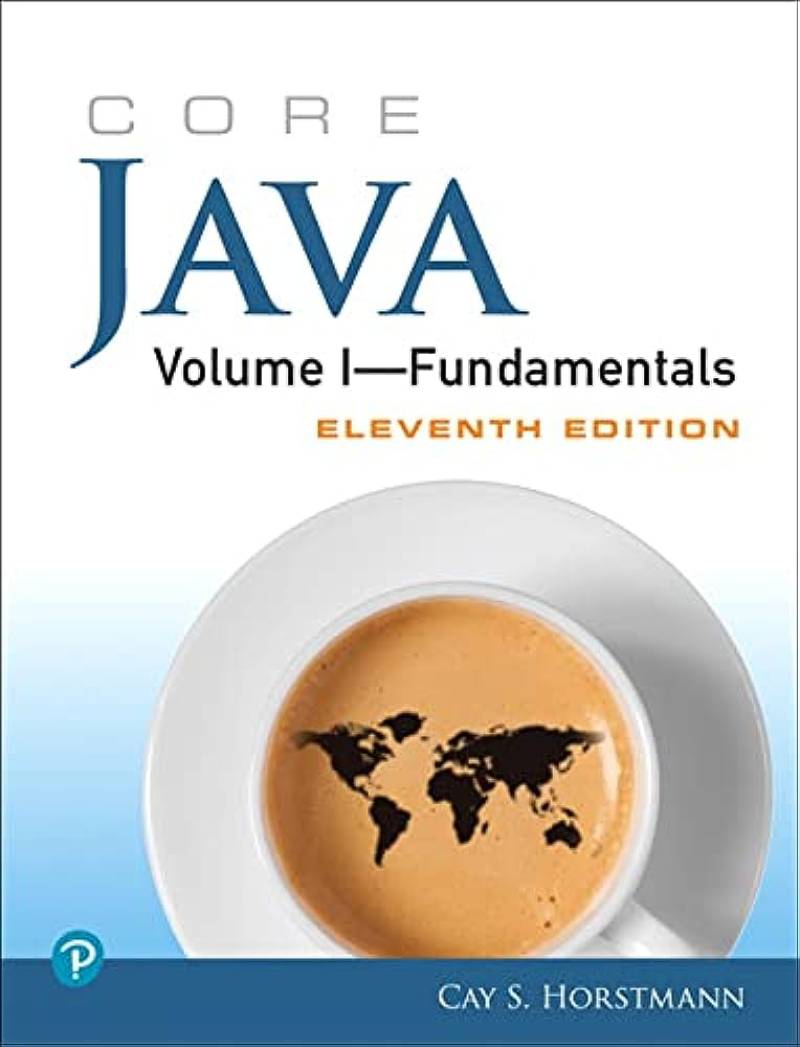
For those who are serious about their Java game, this book is like the holy grail. It’s not just about writing code; it’s about writing robust, maintainable code. Whether you’re on Java SE 9, 10, or 11, this guide is your ticket to a deep, hands-on understanding of the language and its API. And guess what? It’s packed with real-world examples. So, you’re not just learning theories; you’re seeing how they apply in the real world.
What’s Inside?
- Java’s Modularization: The book’s examples have been updated to reflect Java’s modularization. This means you’ll learn how to write code that’s easier to manage and evolve. 🔄
- JShell’s REPL: Dive into more rapid and exploratory development with JShell’s new Read-Eval-Print Loop.
- Key Improvements: Get insights into the Process API, contended locking, logging, and compilation. 🛠️
- Java and UI Programming: The book covers fundamental Java and UI programming, including objects, generics, collections, lambda expressions, Swing design, concurrency, and functional programming. 🖥️
Why This Book?
If you’re an experienced programmer transitioning to Java SE 9, 10, or 11, this book is your best bet. It offers expert insights, solutions, and code. Plus, it covers foundational techniques, idioms, and best practices for writing top-notch Java code.
Bonus Features
- Harness the power of interfaces, lambda expressions, and inner classes.
- Strengthen your programs with effective exception handling and debugging.
- Write reusable code with generic programming.
- Boost performance with Java’s standard collections.
- Design cross-platform GUIs with the Swing toolkit.
- Make the most of multicore processors with Java’s improved concurrency.
Effective Java by Joshua Bloch
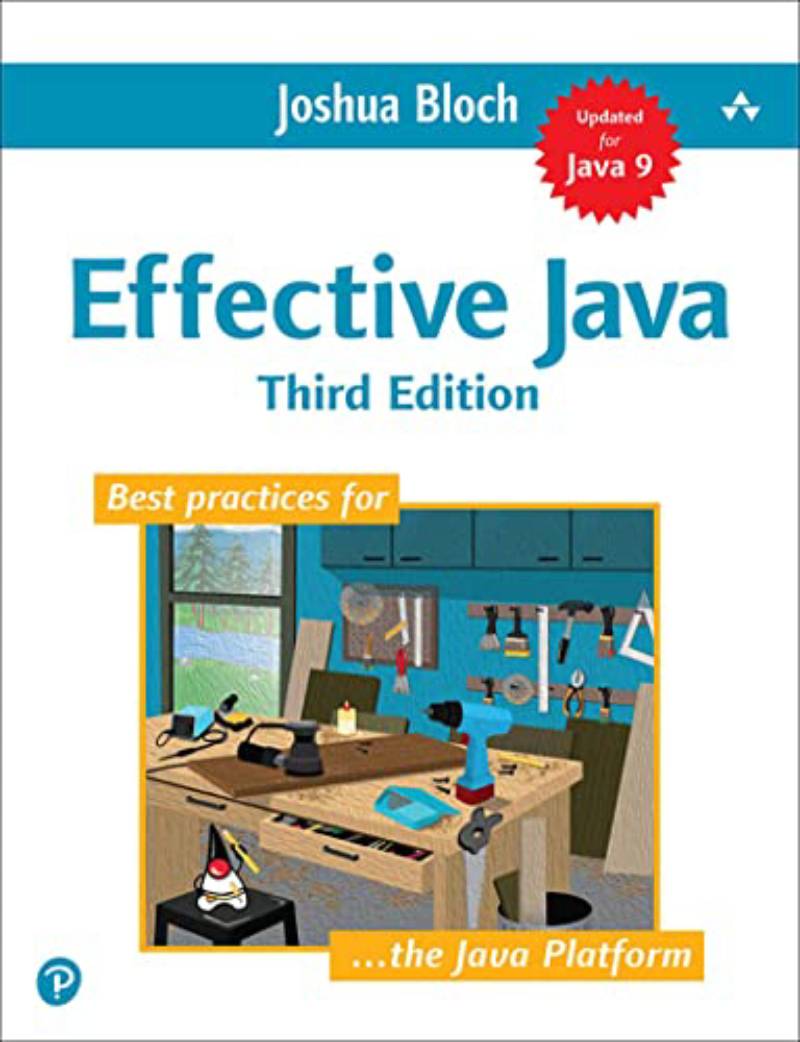
Ever felt like Java’s throwing curveballs at you? Well, “Effective Java” is like your secret playbook. It’s not just about coding; it’s about coding right. With Java constantly evolving, this book ensures you’re not left in the dust.
Inside the Covers
- Java’s Evolution: Java’s been through a lot since 2008. From Java 7 to Java 8, and now Java 9, there’s a ton of new stuff. Think forEach() method, default and static methods, Lambda Expressions, and more. This book’s got the deets.
- Design Patterns & Idioms: Java’s not just about writing code; it’s about writing smart code. Dive into new design patterns and language idioms introduced since the last edition. Lambda, streams, generics, collections – it’s all in here.
- Itemized Wisdom: Each chapter breaks down into “items” – short essays packed with advice, Java platform insights, and fresh code examples. It’s like bite-sized wisdom for your Java journey.
- Classic Meets Contemporary: While the book dives into the latest in Java, it doesn’t forget the classics. Objects, classes, libraries, methods, serialization – the oldies but goodies are all here.
Why This Book?
If you’re looking to not just code but excel in Java, this is your guide. It’s not just about what to do but also what to avoid and why. From traps and pitfalls to the subtleties of the language, this book’s got your back.
Think Java: How to Think like a Computer Scientist by Allen B. Downey
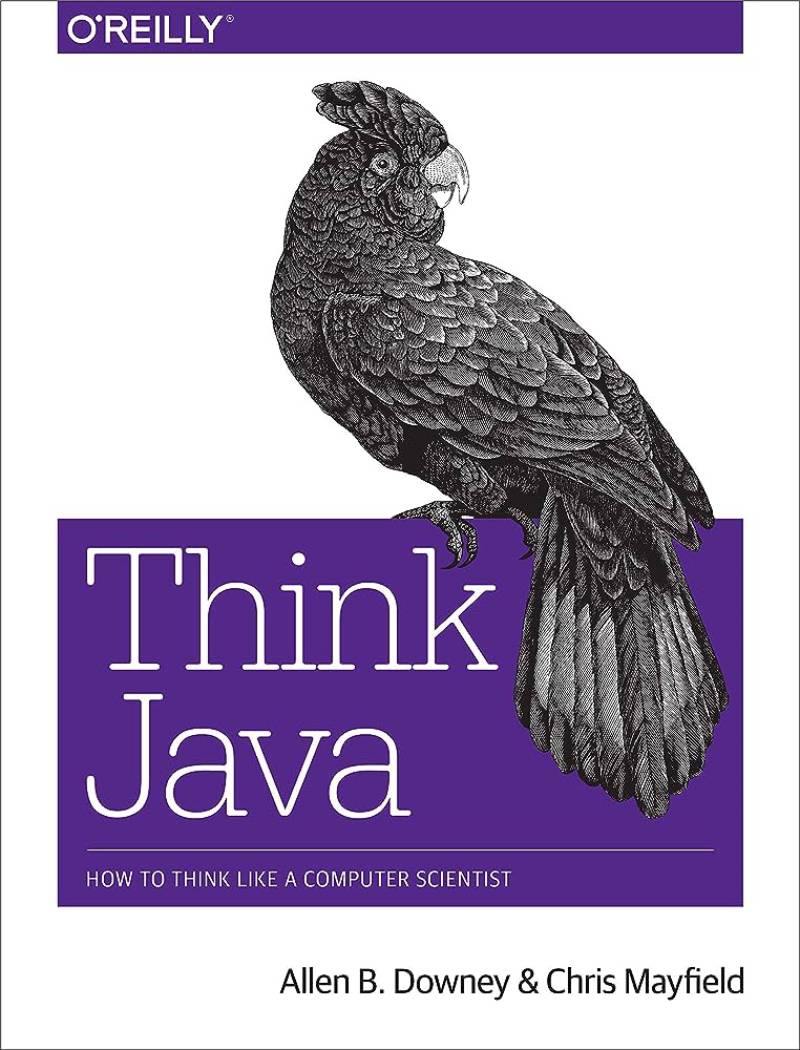
This isn’t just another Java book. It’s a hands-on guide that takes you on a journey from the very basics to the intricate world of object-oriented techniques.
Imagine being in a classroom, but instead of those boring lectures, you’re solving intriguing problems. That’s the vibe this book gives off. It’s designed for those who might have zero experience but are eager to learn. The tone? Super informal. The content? Rich and concise.
Here’s a sneak peek of what’s inside:
- One Step at a Time: Complex topics? No worries! They’re broken down into bite-sized pieces with tons of examples.
- Problem Solving: Learn to think out of the box, develop, test, and debug programs. It’s all about creativity and logic.
- Java Essentials: Dive deep into input/output, loops, classes, strings, recursion, and polymorphism.
- Debugging Skills: Because let’s face it, we all make mistakes. But fixing them? That’s where the real fun begins.
Java: The Good Parts by Jim Waldo
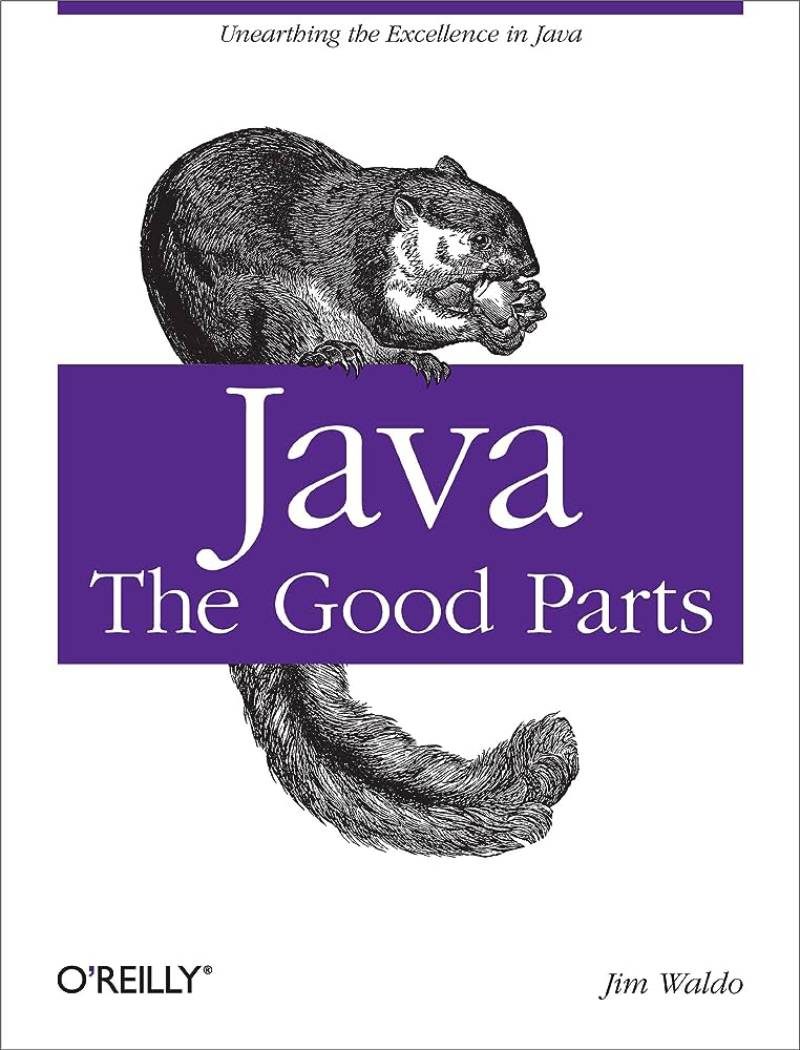
Jim Waldo, a seasoned pro from Sun Labs (yeah, the place where Java was born), takes you on a journey. He’s handpicked the crème de la crème of Java features and explains why they’re the real MVPs.
Here’s a sneak peek of what’s inside:
- Java’s Type System & Packages: Dive deep into how these help in building large-scale software.
- Exception Handling: Trust me, this will make your code more reliable and way easier to maintain.
- Garbage Collection: Say goodbye to memory management woes.
- JVM: Discover how it ensures portability, security, and almost bug-free code.
- Javadoc: Embed documentation right within your code. Neat, right?
- Java RMI: Move code and data across a network. It’s like magic.
- Java Concurrency: Exploit those multicore processors to the max.
But wait, there’s more. You’ll also get insights into reusable data structures with the collections library. And if you’ve ever been curious about how Java’s concurrency constructs work, this book has got you covered.
Java Concurrency in Practice by Brian Goetz
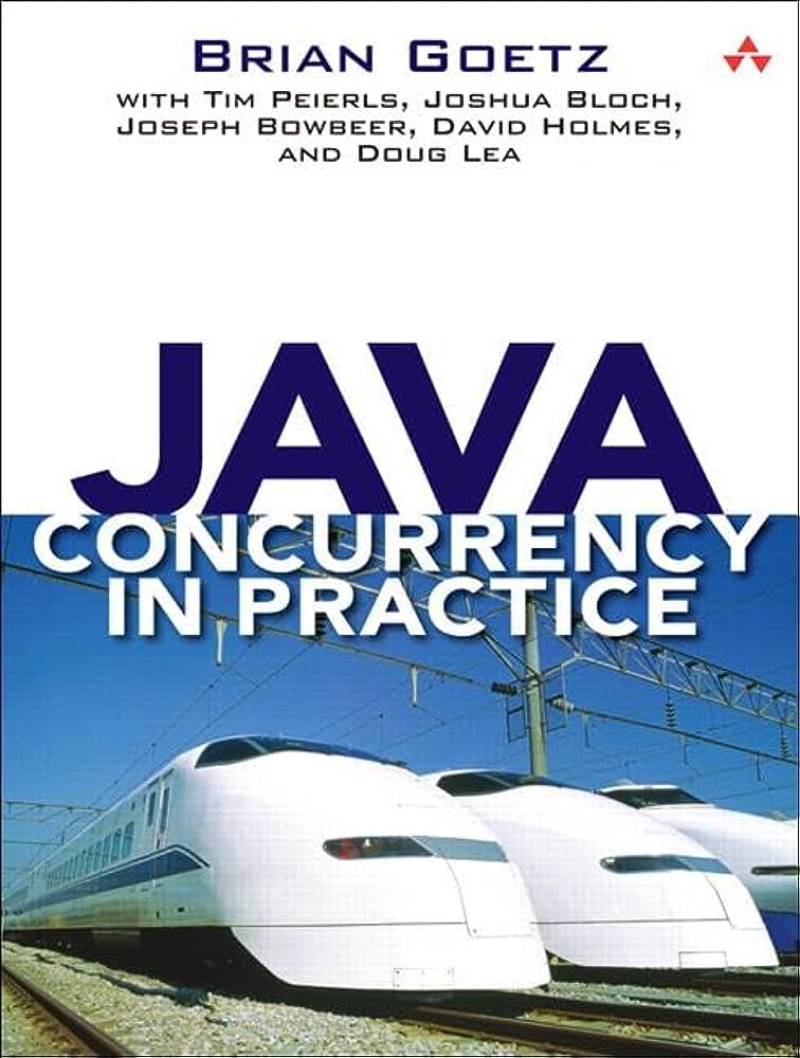
Java Concurrency in Practice by Brian Goetz and team is like the ultimate guide for Java developers who want to level up their game in the world of concurrent programming.
Why’s this book a big deal?
- Multicore Revolution: With more cores in processors, writing code that can effectively use all these cores is kinda the need of the hour. This book is your ticket to that world.
- Java’s Concurrency Tools: Java SE 5 and 6 brought some cool tools for concurrent programming. This book is from the creators of those tools. So, it’s like learning to use a sword from the blacksmith who forged it.
- Real-world Challenges: Concurrency sounds cool, but it’s tricky. It’s easy to write code that seems to work but crashes in production. This book is your shield against those nasty bugs.
Inside the Book:
- The Basics: Dive into the core concepts of concurrency and thread safety.
- Building Blocks: Learn to build thread-safe classes and get hands-on with the concurrency tools in
java.util.concurrent. - Performance Tips: Get the dos and don’ts for optimizing performance.
- Testing: Because what’s code without tests? Learn to test concurrent programs.
- Advanced Stuff: Dive deep with atomic variables, nonblocking algorithms, and the Java Memory Model.
Clean Code: A Handbook of Agile Software Craftsmanship by Robert C. Martin
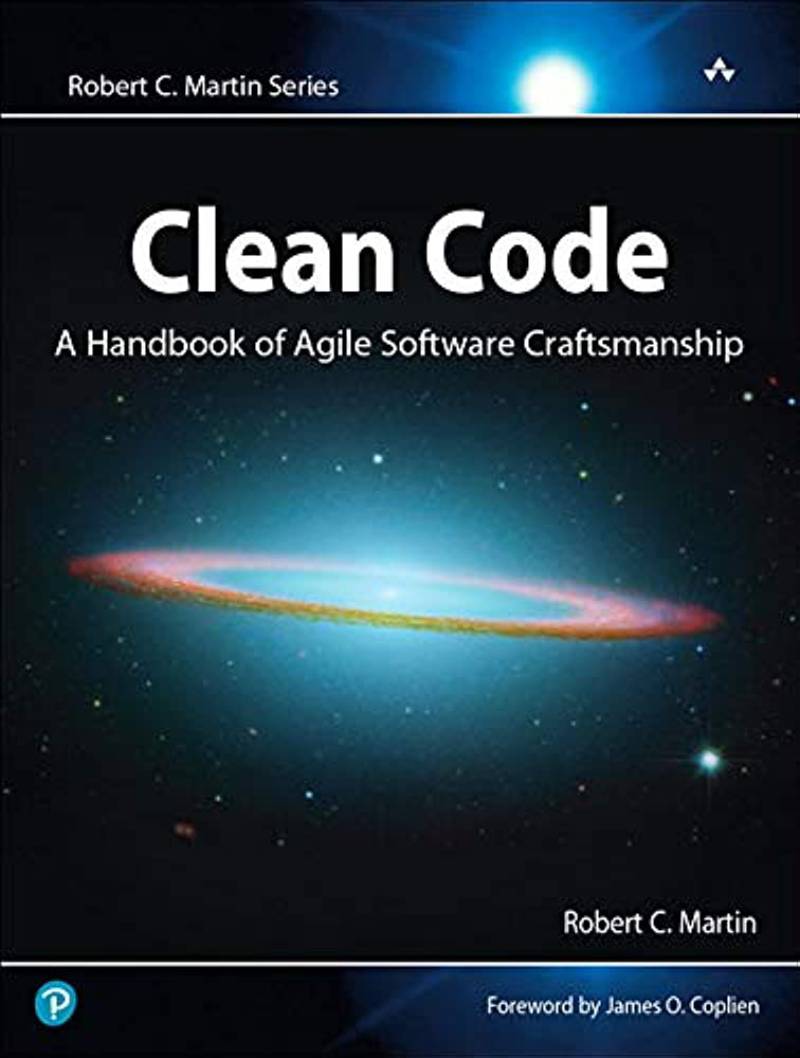
Enter “Clean Code” – it’s like the superhero of Java books.
The Gist:
Bad code? It’s not just a headache; it’s a full-blown migraine for the entire development team. But here’s the thing: it doesn’t have to be this way. Robert C. Martin, our main man, introduces us to a fresh perspective with this book. He’s all about that agile life, and he’s here to teach us the art of writing clean code.
What’s Inside?:
This isn’t just a lecture; it’s a hands-on experience. Expect to see tons of code. Like, a lot. And while you’re at it, you’ll be challenged to think, analyze, and reflect on your coding practices.
The book’s divided into three juicy parts:
- The ABCs of writing clean code.
- Real-life case studies that’ll test your coding chops.
- A treasure trove of heuristics and code “smells” that’ll guide you in your coding journey.
Why Should You Care?:
Ever wondered how to differentiate between good and bad code? Or how to transform that messy code into a masterpiece? This book’s got you covered. From naming conventions and error handling to unit testing and everything in between, it’s all in here.
Bottom Line:
If you’re a developer, software engineer, or even a project manager, this book is like the holy grail. It’s not just about producing code; it’s about producing better code.
Java Performance: The Definitive Guide by Scott Oaks
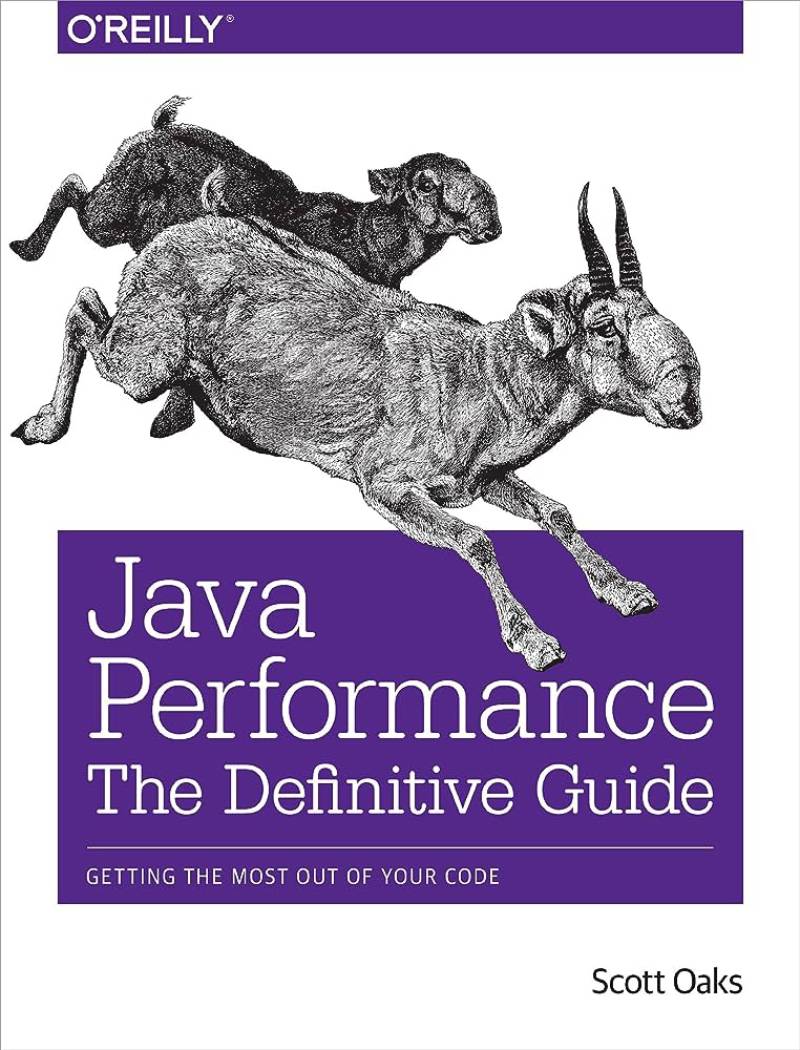
Scott Oaks, a Java maestro, spills the beans on how to squeeze every ounce of juice from your Java code.
What’s Inside?
- Deep Dive into JVM: Understand the heart and soul of Java – the Java Virtual Machine. Know how your code dances within it.
- Garbage Collection (GC) Mastery: GC isn’t just about taking out the trash. Learn how to fine-tune it so your app runs smoother than a jazz ballad.
- Threading & Synchronization: Dive into the world of Java threading. It’s like choreographing a ballet, and you’re the maestro.
- Java EE & Java SE APIs: Get the lowdown on how to make these tools sing in harmony with your applications.
- Database Performance: Because what’s an app without data? And more importantly, how do you make data retrieval snappy?
FAQ On Java Books
What’s the best Java book for total beginners?
Head First Java nails it for newbies. A conversational tone, packed with visuals, it turns complex jargon into a walk in the park. You won’t just read; you’ll do. It’s like having a patient mentor guiding you through your first steps in Java programming.
Can I learn Java without any programming background?
Absolutely! Start with the basics—concepts like variables, loops, and data types. Java for Beginners types of books offer a gentle introduction. Just remember, practice is key; pair reading with lots of coding exercises. And hey, Java’s community is super supportive for when things get tricky.
Which Java book covers advanced topics best?
Effective Java by Joshua Bloch is the heavyweight champ of deep Java insights. Tailored for seasoned devs, this gem dives into concurrency, generics, and lambda expressions. It’s like the spice that every pro chef keeps handy; you’ll sprinkle these refined techniques to whip up savory code.
Is there a definitive reference book for Java?
Herbert Schildt’s Java: The Complete Reference. It’s the encyclopedia of Java—a tome that spans from the basics to the nitty-gritty of APIs and Java libraries. Seasoned devs or those prepping for Java SE or EE exams often keep it within arm’s reach.
How often do Java books get outdated?
Languages evolve, and Java’s no exception. Major releases might make that shiny new book feel old within a year or two. Still, core principles stay rock solid. Keep an eye on official Java news, and pick books that tackle evergreen concepts alongside cutting-edge changes.
Are there any books focusing on Java performance?
Java Performance: The Definitive Guide by Scott Oaks. Whether you’re tuning a server or squashing performance bugs, this read’s a golden ticket. It paints a clear picture of JVM internals and performance tuning. Reading it feels like a gear shift, thrusting your Java mastery into a higher league.
What book should I pick to learn Java 8 features?
Java 8 in Action offers a front-row seat to the revolution. Lambda expressions, streams, and new date/time APIs get the spotlight. The book does a stellar job breaking down how these features spruce up your coding toolkit. It’s an express lane to modern Java craftsmanship.
Can I find Java books focused on building web applications?
Murach’s Java Servlets and JSP makes crafting web apps a breeze. It lays a solid foundation on servlets, JavaServer Pages, and how Java plays in the web arena. Imagine knowing how to stitch together robust sites with good ol’ Java—this book gets you there.
Are there books tailored to Java frameworks, like Spring?
Spring in Action stands tall. It’s a springboard into the Spring Framework—from dependency injection to microservices. It translates Spring’s magic into practical use-cases. By the end, bootstrapping a Spring app feels less like wizardry and more second nature.
What’s a good Java book for preparing for interviews?
Java Programming Interviews Exposed removes the sweat from tech interviews. You’ll encounter puzzles and questions that echo real interviews. Mix this with a dose of Java Puzzlers, and you’ll walk into that interview room wielding confidence like a shiny saber.
Conclusion
So, we’ve zipped through the corridors of Java’s vast library, right? In the labyrinth of countless pages, hopefully, you’ve spotted the Java Books that resonate with your coding vibe—whether that’s getting to grips with the basics or grappling with the gritty advanced concepts.
Let’s reel it back. For the greenhorns, those fresh on the scene, books aimed at Java newbies are your trusty sidekicks. They’ll be the lifeboats when those Java tides come rolling in. As for the hardened Java veterans, how about tomes like “Effective Java”? They’re sure to add that spice to your dev life, guaranteed.
And remember, resources like O’Reilly and Addison-Wesley are not just publishers; think of them as the skylights in the teched-out loft that is Java. Now, with newfound knowledge and a compass-full of LSI keywords and semantically relevant topics, may your code sail smoothly, and may your debugger hardly ever peep. Safe journeys on the Java sea!
If you liked this article about java books, you should check out this article about Hadoop alternatives.
There are also similar articles discussing Next.js alternatives, Bootstrap alternatives, React alternatives, and JavaScript alternatives.
And let’s not forget about articles on GraphQL alternatives, jQuery alternatives, Django alternatives, and Python alternatives.
- Professional Video: Cinematography Apps Like FiLMiC Pro - April 26, 2024
- Optimizing Your Shopify Store for Maximum Dropshipping Success - April 26, 2024
- Python Explained: What is Python Used For? - April 26, 2024



